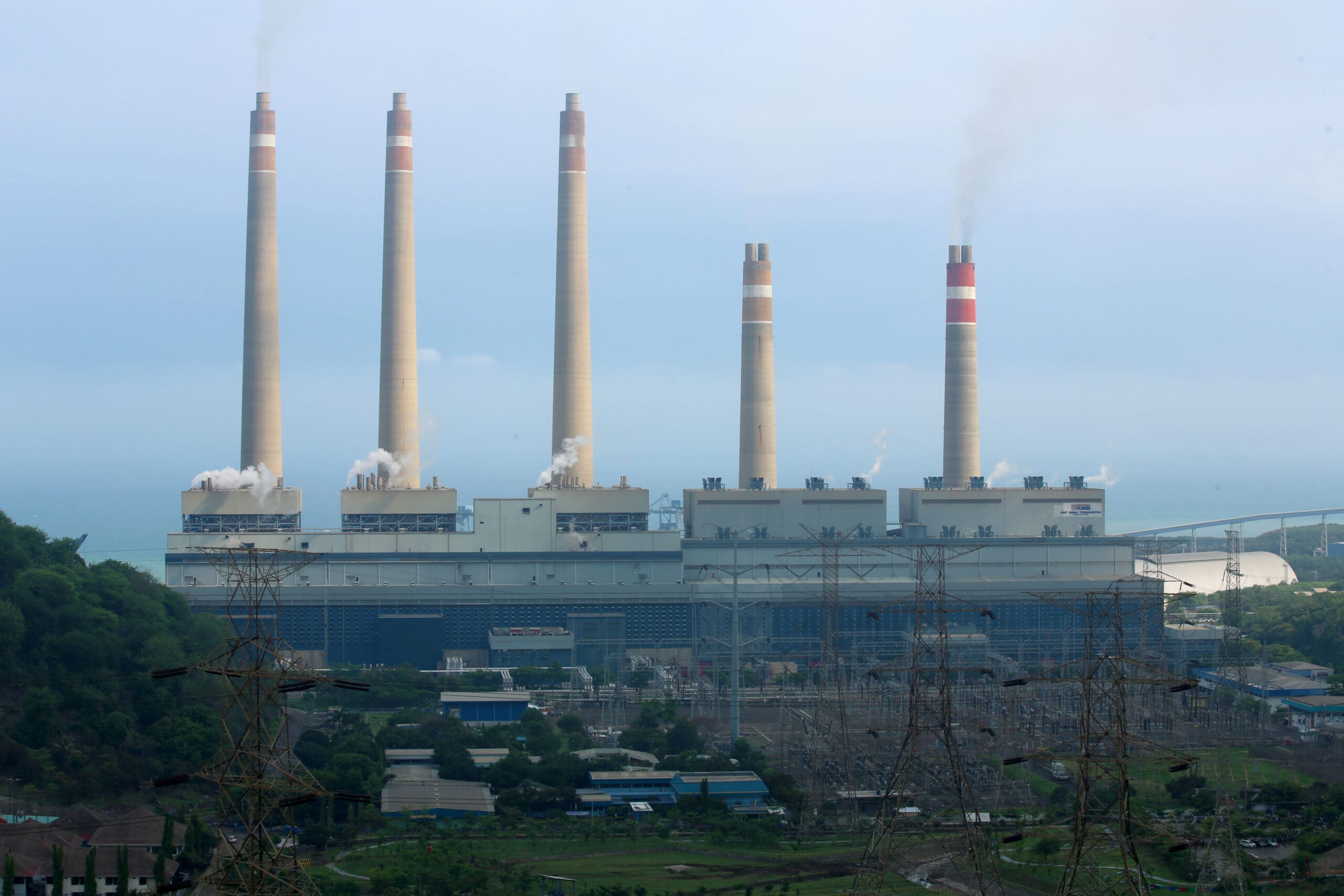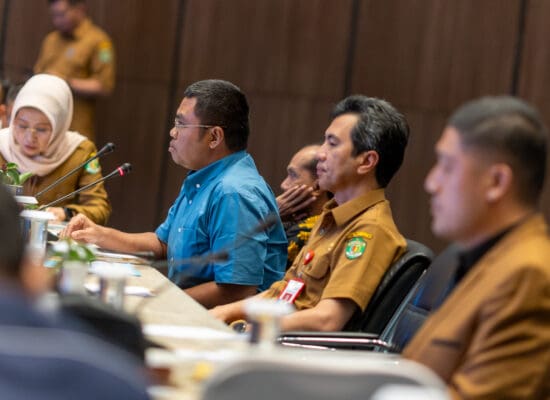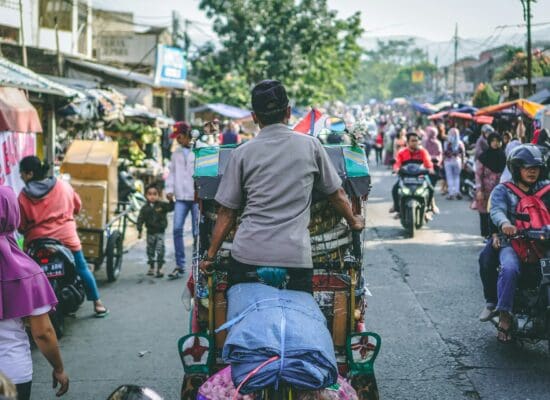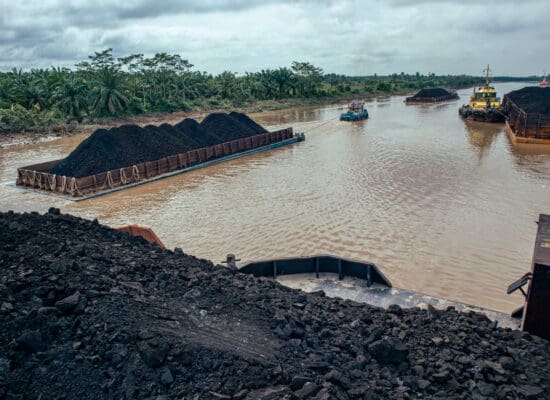
With Regulation 10/2025, issued on 15 April 2025 by the Ministry of Energy and Mineral Resources, Indonesia has established a roadmap for energy transition in the electricity sector, aimed at reducing the sector’s dependence on coal and achieving net-zero emissions by 2060. The move coincided with a pledge by Minister of Energy and Mineral Resources Bahlil Lahadalia to retire the 660-MW coal-fired power plant Cirebon-1 early, using financial support from the Asian Development Bank (ADB). The power plant is now set to close seven years before the current operating contract expires.
At first glance, this regulation looks like an ambitious step, setting out laudable plans for retiring coal plants early, developing renewable energy, and investing in low-carbon technologies. However, it fails to address a critical part of the energy transition—justice. The “justice” aspect should not be an embellishment, but the main foundation. Without it, the energy transition will end up being an elite project, and vulnerable groups like local communities and fossil fuel workers will shoulder the burden.
Lack of Public Participation
The new regulation remains trapped in a technocratic perspective, focusing solely on metrics like coal power and emissions reduction to measure success. It fails to address the issues for workers who will lose their jobs when the coal plants close, and it lacks mechanisms to ensure inclusive participation from local communities in decision making.
The energy transition is not just about retiring coal-fired power plants; it’s also about mitigating the economic and social risks in the value chain. In 2024, data from the Ministry of Energy and Mineral Resources showed that there were more than 267,000 workers in the coal-mining industry, around 32,000 of whom work in coal-fired power plants.
The risk of mass layoffs due to the energy transition must certainly be mitigated; for example, through retraining and social security schemes, which should be integrated into the new regulation. For these programmes to accurately address local needs, meaningful public participation is needed so that well-targeted energy transition policies can be developed.
This regulation, as stipulated in Article 14, mandates the creation of a joint working team to evaluate state-owned electricity company Perusahaan Listrik Negara (PLN)’s accelerated phase-out of coal-fired power plants. However, membership of this working team is only open to representatives of ministries and other governmental institutions, local government, academic institutions, and PLN itself. Notably, there is no mention of civil society organisations, local communities, let alone labour unions—groups that will be most affected by this policy. The lack of participation raises concerns about transparency in decision making.
The energy transition is not just about retiring coal-fired power plants; it’s also about mitigating the economic and social risks in the value chain.
In addition, this regulation fails to explicitly regulate the mechanism for public participation that will allow formal platforms for workers and communities to shape decisions on which coal plants will be closed, how exactly they will be closed, and preferred renewable energy sources to replace coal. This is certainly contrary to the principles of democratic governance, which emphasise transparency, accountability, and social inclusion.
Other countries have shown that this process can be structured inclusively. Germany’s coal phase-out, which started in 2018, has involved communities, civil society organisations, and unions in national negotiations through the establishment of the Coal Commission by the federal government. Another example is South Africa, which established the Presidential Climate Commission (PCC) to involve various stakeholders (government, unions, businesses, academics, and civil society) in overseeing and facilitating a fair and equitable energy transition towards a low-carbon economy.
Meanwhile, Indonesia remains fixated on a top-down approach, where the Ministry of Energy and Mineral Resources prepares a roadmap without engaging with impacted groups and hopes that everything will run smoothly in practice.
Problematic Technologies Exacerbating Environmental Injustice
The new ministerial regulation also includes co-firing technology, carbon capture and storage (CCS), and nuclear power plants as part of the energy transition strategy, all of which have negative economic and socio-ecological impacts.
For biomass co-firing to work at scale, it needs to source from industrial plantation forests, which will shift the crisis from pollution to deforestation. Likewise, the effectiveness of carbon capture technology is still questionable, especially for ageing power plants. Its high cost can potentially affect the cost of generating electricity, which risks increasing electricity rates. Therefore, both co-firing and CCS ultimately maintain coal dependence rather than reducing it.
This regulation also includes plans to build a 35-GW nuclear power plant by 2060. But constructing nuclear power plants is costly and can take more than 10 years. Nuclear power plants are also vulnerable to earthquakes, and Indonesia is a country with a high level of seismic activity. Their hazardous radioactive waste also poses a high risk. Therefore, nuclear power is not a realistic solution for Indonesia’s energy transition.
Implementing Justice
A just energy transition cannot rely on technical calculations alone—it requires a democratic approach. The pilot for the coal-fired power plant phase-out, Cirebon-1, must set an example by placing people at the centre of this change. Unfortunately, the ministerial regulation does not adequately address this. In order to achieve a truly just energy transition, the government should therefore follow these five key recommendations, which apply to the current and future regulations.
First, regulations need to ensure an inclusive public participation mechanism. The government must implement recognitional justice by acknowledging that affected communities, trade unions, women, Indigenous Peoples, and other vulnerable groups have the knowledge, experience, and legitimate insights to contribute to the energy transition process, from planning the coal phase-out to developing renewable energy. The current regulation must incorporate representation from local communities and vulnerable groups into the structure of the joint working team. These groups must become equal deliberative actors instead of symbolic complements. A bottom-up approach will allow citizens’ lived realities to shape the energy transition.
Second, the government must incorporate social protection and worker retraining into its regulations. Distributive justice demands the fair distribution of the benefits and burdens of the energy transition. The early retirement of coal plants should not be interpreted as merely eliminating coal-plant generating units; this must be accompanied by decent social protection programmes for the impacted workers: retraining, temporary income guarantees, social security, and access to jobs in the clean energy sector. The government must see this as a social investment that builds renewables on a foundation of justice, not mass layoffs.
As a roadmap for the energy transition, the regulation must be revised to ensure meaningful public involvement, transparency in governance, and inclusive decision making.
Third, rather than pushing for a top-down approach for energy transition, the government should prioritise decentralisation and community-based energy sovereignty by supporting renewables projects. The current regulation can also be strengthened by providing incentives for communities that manage renewable energy. This model can strengthen village independence, expand energy access, and create local jobs without increasing inequality.
Fourth, the government must stop dependence on problematic technologies that prolong the use of fossil fuels, such as co-firing projects, CCS, and nuclear power plants. These come with high costs, considerable risks, and take a long time to build. The government must instead focus on accelerating the development of safer, cheaper, and more accessible renewable energy such as solar, wind, and hydro power. This in turn will reduce the risks of rejection and social conflict.
Fifth, the new regulation, by presenting a roadmap, should address financial elements, such as a financial framework and monitoring mechanism, both of which are currently absent. A just energy transition requires strong financial support, and its implementation should not burden communities. Existing schemes (such as carbon taxes, coal royalties, and fiscal revenues from the fossil fuel sector) can be mobilised for the main sources of financing. The “polluter pays” principle must be applied so that the fossil fuel industry shares responsibility for the transition to a clean energy system.
Conclusion
Technically, the newly introduced regulation has not provided space for public participation from civil society, non-governmental organisations, and trade unions in the policy monitoring and implementation stage.
As a roadmap for the energy transition, the regulation must be revised to ensure meaningful public involvement, transparency in governance, and inclusive decision making. For instance, the selection of technology and renewable energy sources must consider social and ecological impacts in order to ensure a just and sustainable transition without causing new conflicts or inequalities.
The early retirement of the Cirebon-1 coal plant must become a successful case study—not only for a technically and financially effective energy transition, but also for one that is socially just. This pilot project can bring justice through ensuring inclusive participation from local communities and impacted groups, as well as protection for workers.
Sartika Nur Shalati is a Policy Strategist and Agung Budiono is Executive Director at CERAH, an Indonesian non-profit organisation working to advance energy transition policies. This article was co-published by CERAH’s Transisienergiberkeadilan.id. Read the Indonesian version here.
Stay Informed and Engaged
Subscribe to the Just Energy Transition in Coal Regions Knowledge Hub Newsletter
Receive updates on just energy transition news, insights, knowledge, and events directly in your inbox.


